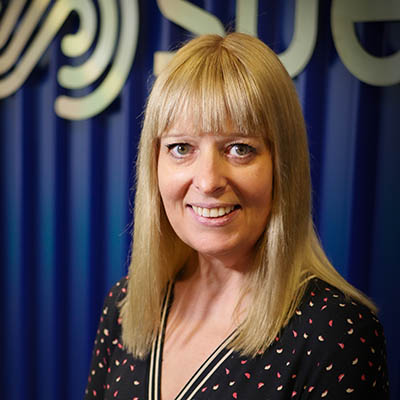Heart health matters for SUEZ UK and the British Heart Foundation

Consider heart health. Among the physical ailments that result in long-term absence from work in our company, heart and circulatory diseases are the second most common cause (after cancer). The impact across the UK economy is colossal, not to mention the anxiety and suffering experienced by the 7.6 million people living with these conditions.
According to the British Heart Foundation (BHF), the annual healthcare costs amount to around £12 billion, while the economic cost (including premature death, long-term care, disability and other costs) is estimated to be £28 billion. Today, 480 people in the UK will die from a heart or circulatory disease; around 130 will be younger than 75 years old. An average of 270 hospital admissions will be due to heart attack, and 190 people will die from coronary heart disease.
Positive action
These are grim statistics. But they should concentrate our minds on the positive actions we can take to reduce the personal and national toll of heart disease. Which is why we will be focusing much of our efforts during our annual Health Week this month (23-27 September) on raising awareness of the risks and promoting the positive responses and lifestyle habits that can be life-changing for colleagues and their families and friends.
This year we have also engaged a second charity partner at SUEZ UK, the BHF, and we took the opportunity to launch our joint programme of education and fundraising with them at our annual Wellbeing and Inclusion Conference on September 17. Given that heart health and cancer are the two biggest health issues, our additional partnership with the BHF will compliment our continuing relationship with Macmillan Cancer Support, which we have supported for a decade.
The BHF is Europe’s biggest funder of research into heart and circulatory diseases, investing more than £100 million a year. The charity organises the network – called The Circuit – providing the location details for over 62,000 defibrillators across the UK. Around 200,000 people have interacted with the BHF’s training on how to perform CPR (cardiopulmonary resuscitation).
I’m proud to say that 196 of those defibrillators are funded and hosted by SUEZ recycling and recovery UK. More than half our sites have an AED (automated external defibrillator), and each has several local colleagues trained in their use. We will be rolling out more through the rest of 2024. In all, close to 1,000 employees are qualified First Aiders, having completed our in-house training course, which includes coaching in CPR.
During our global Health Week this year, we will be circulating leaflets, posters, videos and other material to help colleagues learn the signs of stroke, seizures and heart attack, and the appropriate actions to take, having called an ambulance. Rapid reactions in emergency situations can save lives, as colleagues on site have shown on multiple occasions.
Emergency response
Most incidents involving members of the public tend to happen at the household waste and recycling centres we manage. At one site in the southwest, a person collapsed after they got out of their vehicle. Our site staff reacted quickly. One colleague immediately attended to the person and began CPR, as another grabbed the site’s AED, while the emergency services were being called. In this case, when the defibrillator was attached, it informed the team ‘No shock needed, continue CPR’, which they did until the victim showed signs of consciousness and was placed in the recovery position. The ambulance crew then took the member of the public to hospital.
Care and support
Our people had every reason to be proud of their commitment to wellness, and this includes mental health as well as physical wellbeing. We encourage employees who may need wellbeing support to reach out to the various people around them who can point them to the help they need. Line managers, and our HR or Health, Safety & Wellbeing representatives know what to do. We also have a Wellbeing & Inclusion network comprising a dedicated manager, officers and over 20 colleagues who volunteer as our ambassadors for wellbeing and inclusion.
Heart health is just one facet of our people’s wellbeing – and our wider programme that ranges from wellness webinars to roadshows offering tips on healthy eating habits and physical exercise, as well as health checks for blood pressure and diabetes. We believe education and empowerment is truly vital.
But if you do one thing today, I’d encourage you to visit the BHF website and complete their CPR training. All you need is a smart phone, a cushion, and 15 minutes’ free time. Whilst no one ever wants to find themselves in that situation, in someone’s moment of need … YOU could become a lifesaver!
